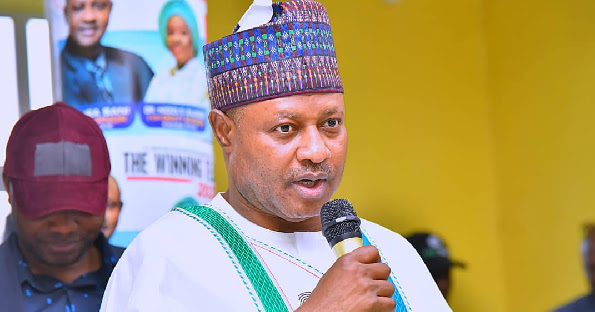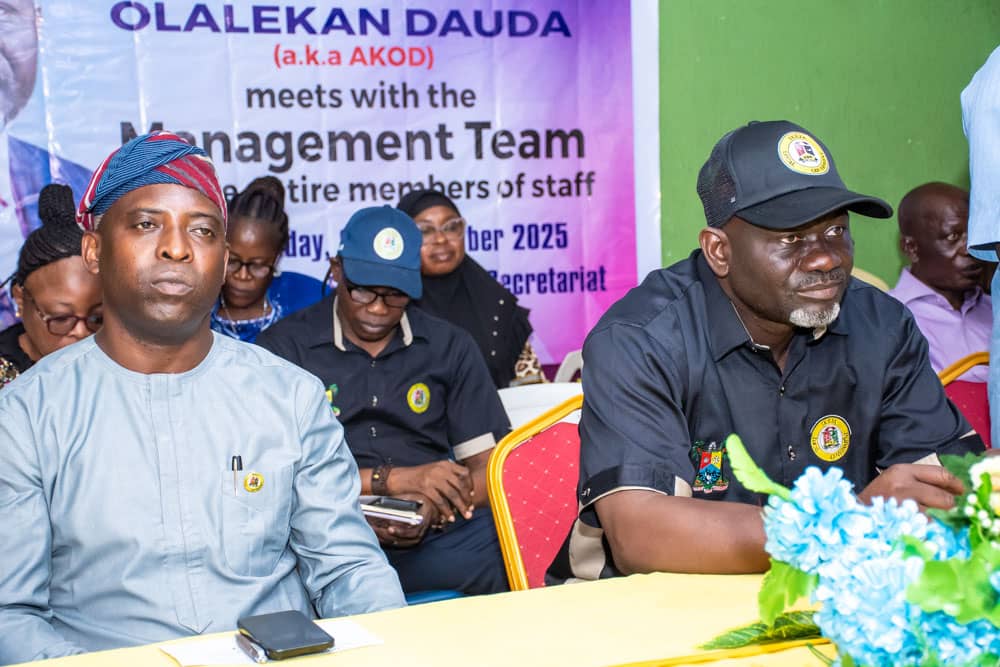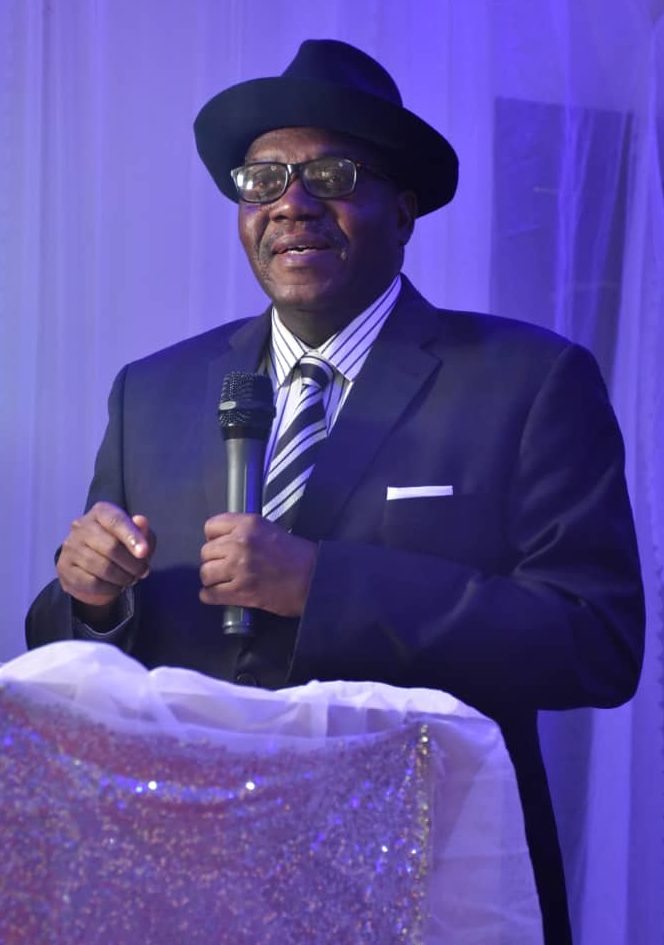Kaduna State Governor, Senator Uba Sani, has firmly distanced himself from being labeled a political mentee of his predecessor, Mallam Nasir el-Rufai, emphasizing that his primary allegiance lies with the people of Kaduna State rather than any individual. Speaking during an exclusive interview on a television program, Politics Today on Channels Television, Governor Sani clarified his political stance, governance philosophy, and vision for the state, underscoring his commitment to unity, development, and inclusive governance.
Setting the Record Straight on Political Mentorship
Governor Sani’s remarks were a direct response to persistent speculations regarding his political relationship with el-Rufai, who governed Kaduna State from 2015 to 2023. The former governor is widely regarded as a polarizing figure, known for his bold reforms and uncompromising leadership style. Many political observers have speculated that Sani, who served as a senator representing Kaduna Central before becoming governor, was groomed by el-Rufai, given their shared political history within the All Progressives Congress (APC).
However, Sani was unequivocal in rejecting this narrative. “I am not anybody’s mentee,” he declared, emphasizing that his political journey and leadership approach are rooted in his own experiences and convictions. “My eyes are on Kaduna, not on individuals,” he added, signaling his intent to chart an independent path as governor. This statement is significant in a political landscape where loyalty to predecessors or political godfathers often shapes governance and policy decisions.
Sani’s assertion reflects a broader desire to establish his administration as distinct from el-Rufai’s, while still acknowledging the contributions of past leaders. He noted that his focus is on building a united Kaduna, where all citizens, regardless of ethnic or religious affiliations, can thrive. This emphasis on unity is particularly relevant in a state with a history of ethno-religious tensions, which have occasionally flared into violence.
Governance Philosophy: Unity and Development
Governor Sani’s administration has prioritized policies aimed at fostering inclusivity and addressing the developmental challenges facing Kaduna State. During the interview, he outlined his vision for a state where governance transcends personal loyalties and focuses on delivering tangible benefits to the people. “Kaduna is bigger than any one individual,” he said, underscoring his commitment to policies that prioritize the collective good.
One of the cornerstones of Sani’s governance agenda is economic empowerment. Kaduna State, located in Nigeria’s northwest, is a key economic hub in the region, with a diverse population and significant agricultural and industrial potential. However, the state has faced challenges such as unemployment, poverty, and insecurity, which have hindered its growth. Sani’s administration has introduced initiatives to address these issues, including investments in education, healthcare, and infrastructure.
For instance, the governor highlighted ongoing efforts to improve access to quality education, particularly in rural areas. He noted that his administration is working to rehabilitate schools, train teachers, and provide learning materials to ensure that children across the state have access to opportunities that can transform their lives. “Education is the foundation of development,” Sani said, emphasizing that an educated populace is critical to Kaduna’s long-term prosperity.
In addition to education, Sani’s government has prioritized healthcare reforms. The administration has embarked on upgrading primary healthcare centers and ensuring that essential drugs and medical equipment are available to communities. These efforts are part of a broader strategy to improve the quality of life for Kaduna residents and reduce disparities between urban and rural areas.
Addressing Insecurity: A Collaborative Approach
Security remains one of the most pressing challenges in Kaduna State, as it does in much of Nigeria’s northwest. The region has been plagued by banditry, kidnapping, and communal clashes, which have disrupted economic activities and displaced thousands of people. Governor Sani acknowledged the severity of the security situation but expressed optimism about ongoing efforts to restore peace.
He emphasized the importance of collaboration between state and federal authorities, as well as community leaders, in tackling insecurity. “Security is a collective responsibility,” he said, noting that his administration is working closely with security agencies to strengthen intelligence-gathering and response mechanisms. Additionally, Sani has prioritized community engagement, encouraging traditional and religious leaders to play a role in promoting peace and resolving conflicts.
One of the innovative approaches Sani highlighted is the use of non-kinetic measures to address insecurity. These include dialogue with affected communities, rehabilitation programs for repentant bandits, and initiatives to address the root causes of violence, such as poverty and unemployment. By combining these efforts with kinetic operations, Sani believes the state can achieve lasting peace.
Navigating Political Dynamics
Sani’s decision to distance himself from the “mentee” label also reflects the complex political dynamics in Kaduna State. Nasir el-Rufai’s tenure as governor was marked by significant achievements, such as urban renewal projects and reforms in the civil service, but it was also controversial. Policies such as the demolition of illegal structures and the restructuring of traditional institutions drew criticism from some quarters, creating a polarized political environment.
By asserting his independence, Sani is positioning himself as a leader who can bridge divides and appeal to a broad spectrum of stakeholders. Political analysts suggest that this approach is strategic, as it allows Sani to consolidate his own political base while avoiding being tied to the controversies of his predecessor. “Sani is walking a tightrope,” said Dr. Aminu Yusuf, a political commentator based in Kaduna. “He needs to acknowledge el-Rufai’s contributions to maintain party unity, but he also wants to carve out his own identity to gain the trust of the people.”
Sani’s emphasis on unity also extends to his relationship with other political actors in the state. He has made efforts to engage with opposition parties and stakeholders who may have felt marginalized under previous administrations. This inclusive approach, he believes, is essential for fostering stability and ensuring that governance benefits all segments of society.
Economic Reforms and Investment Drive
Beyond security and social services, Sani’s administration is focused on positioning Kaduna as a hub for investment and economic growth. The state’s strategic location, with proximity to Abuja, the federal capital, and its well-developed infrastructure, makes it an attractive destination for investors. Sani has prioritized creating an enabling environment for businesses, including streamlining bureaucratic processes and improving access to credit for small and medium enterprises.
One notable initiative is the Kaduna Economic Transformation Program, which aims to attract foreign and domestic investment in key sectors such as agriculture, manufacturing, and technology. The program includes incentives for investors, such as tax breaks and land allocation, as well as partnerships with private sector organizations to drive innovation.
Sani also highlighted the importance of agriculture in Kaduna’s economy. The state is known for its fertile land and diverse agricultural produce, including maize, rice, and ginger. To maximize this potential, the administration is investing in modern farming techniques, irrigation systems, and access to markets for farmers. “Agriculture is the backbone of our economy,” Sani said. “We are committed to empowering our farmers and ensuring food security.”
Looking Ahead: A Vision for Kaduna
As Governor Sani approaches the midpoint of his first term, his administration is at a critical juncture. The challenges facing Kaduna State are immense, but Sani’s leadership style—marked by pragmatism, inclusivity, and a focus on results—has earned him praise from some quarters. However, critics argue that more needs to be done to address pressing issues such as unemployment and infrastructure deficits.
Sani remains optimistic about the future. He envisions a Kaduna State where citizens can live in peace, access quality education and healthcare, and contribute to a thriving economy. “My goal is to leave a legacy of progress and unity,” he said during the interview. “I want every Kaduna resident to feel proud of their state and confident in its future.”
In distancing himself from the “mentee” label, Sani is not only asserting his independence but also signaling a shift in the state’s political narrative. His focus on Kaduna’s collective aspirations, rather than individual alliances, reflects a broader trend in Nigerian politics, where younger leaders are seeking to redefine governance on their own terms.
As Kaduna navigates its challenges and opportunities, Governor Uba Sani’s leadership will be closely watched. His ability to deliver on his promises while maintaining political stability will determine the success of his tenure and shape the state’s trajectory for years to come.





